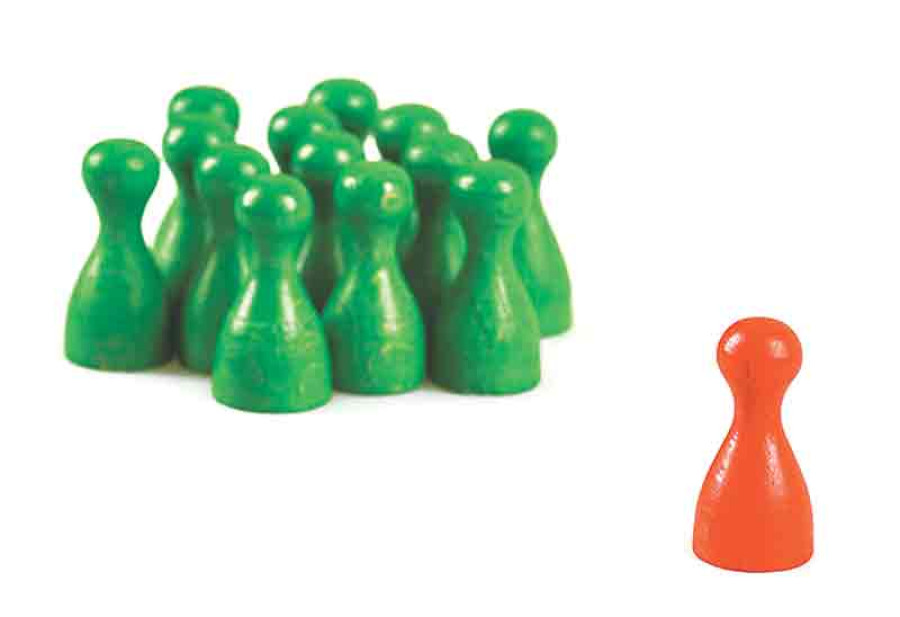Opinion
Make Nepal better
Without the people taking ownership to end discrimination, national campaigns by NGOs and govt can only exact so much change
The journey towards a true socially inclusive Nepal has never been an easy ride but rather a bumpy one. Yet despite the many existing challenges, big strides have been accomplished in the last decade: Citizens belonging to ethnic groups with a long-standing story of discrimination are now able to proudly celebrate their own rich cultures, including celebrating their main festivals, most of which have now become national holidays.
Yet discrimination is a hard beast, and it is still so alive and real for way too many citizens who are marginalised and, consequentially, lack the same opportunities like others. In this regard, we can say with certainty that Nepal is not yet a level playing field for everybody. If historical and traditional prejudices and beliefs ‘tag’ you as a low caste, you still face systematic discrimination.
Sajana Sunar, a young activist and community organiser from a Dalit family living in Dailekh and one of the winners of the National Volunteering Award 2017, shared that she had faced a continuous pattern of discrimination throughout her life. “The teachers never checked my homework. I never got chance to sit on a bench, and I had to stand the whole time. I did not have any friends because of my caste.”
Forced to hide
Perhaps things are changing in urban areas, but I have read articles saying that Dalit students have to hide their identities to rent a room. This type of discrimination is still lingering and will probably be around for long. If you are a person living with disabilities, you also face a similar pattern of discrimination, setting your life on a path of further isolation and marginalisation. This can change, and Nepal can become more inclusive and just for everybody; but for this to happen, people and institutions must take a stand.
We cannot simply wait for the government to take action against discrimination. It is not that the central, state and local governments cannot do anything.
As duty bearers, they have the primary responsibility. A system based on a just and fair rule of law must take action against discrimination. The new constitution does not provide for the creation of a powerful Anti-Discrimination Commission, but rather the strengthening of existing commissions dealing with single thematic issues concerning the lives of women, Dalits and Muslims. Reporting and filing of discrimination cases should be made really straightforward and easy, not just relying on some good police officers and the duties of a commission located in a far and remote place called Kathmandu.
A great sensitisation effort should be rolled out at the grassroots level, and the police force should play a far bigger role in dealing with systematic discrimination. A national campaign against all types and levels of discrimination should be launched, helping people understand that discriminating against a fellow citizen is something punishable by law. Impunity and inaction cannot be justified forever. Discrimination has been and will always be shameful and outrageous, and it should be treated as such. Last but not least, the people are key, possibly even more important than the state.
By the people, for the people
Nepal does not belong to a certain coalition of parties or the government. The country belongs to the people that together form a community bounded by a set of common values and principles that must be upheld. Like it or not, certain behaviours and norms should simply be banned. Think about having a domestic child worker; only now are people thinking about changing this, at least in places like Kathmandu. Till a few years ago, it was totally acceptable to have a domestic child helper. It was something of the norm, part of a culture or way of doing things based on unequal power relationships. People must start to react to these traditions and way of thinking leading to discriminatory behaviours.
Perhaps a national campaign against all the forms of discrimination can be supported by the government and national and international organisations, but citizens and informal groups should be allowed to take a stand and have strong ownership of the process. Youths should be encouraged and allowed to shape the initiative, bringing ideas and inputs. This could lead to a true process of community empowerment, bringing people together based on a sense of civic duty expressed through a truly ‘national pride’ initiative.
If citizens can clean up the Bagmati River, would they be able to embark on something even more complicated and sensitive, something that would require a change in an ingrained way of thinking and behaviour? Perhaps the best way to start would be to harness the power of youths like Sajana Sunar and other youths who are facing discrimination. Their daily struggle, grit and positive attitude to make Nepal a better place, not only for themselves but for everybody, is nothing short of extraordinary. They are the ones who can inspire those citizens that unconsciously, or consciously, they have been holding power unfairly. They are part of the equation and key to the solution.
Galimberti is a co-founder of ENGAGE, an NGO partnering with youths living with disabilities




 9.89°C Kathmandu
9.89°C Kathmandu









